#vladivostok admirals
Text




Scenes from the KHL's Far-East Derby (December 20, 2023 edition), with both visitors Amur Khabarovsk and home team Admiral Vladivostok wearing special uniforms for the occasion!
Top: Amur's Vyacheslav Gretsky asks some questions of Admiral d-man Leonid Metalnikov and goalie Vasily Demchenko. They have answers.
Middle Left: Admiral take the lead in the 3rd! Semyon Pankratov (#99) tips the puck past Amur goalie Igor Bobkov...
Middle Right: ...But with less than two minutes to go, Amur tie it up. Yegor Korshkov (not in photo) takes advantage of Vladislav Barulin's screen to beat Demchenko and level the scores.
Bottom: And Korshkov's in this photo, as he celebrates his second goal of the game, in OT, to give Amur the honours out in GMT+10 this time around.
(Image Sources: hcamur.ru and hcadmiral.ru)
#KHL#Russia#Russian Hockey#Belarus#Goalies#Defencemen#Forwards#Amur Khabarovsk#Admiral Vladivostok#Yegor Korshkov#Vladislav Barulin#Vasily Demchenko#Semyon Pankratov#Leonid Metalnikov#Vyacheslav Gretsky
4 notes
·
View notes
Text
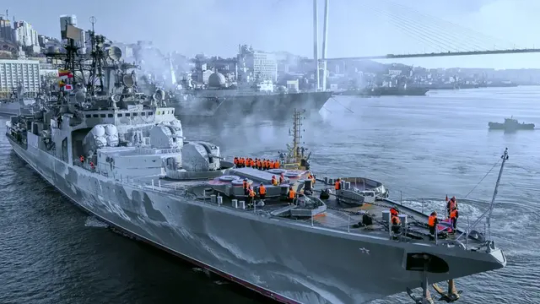
Udaloy-class destroyer Admiral Panteleyev in Vladivostok
13 notes
·
View notes
Link
[ad_1] Updated September 16, 2023 at 11:03 a.m. EDT|Published September 16, 2023 at 2:05 a.m. EDTIn this handout photo released by the Russian Defense Ministry, North Korean leader Kim Jong Un is shown visiting the Admiral Shaposhnikov frigate of the Russian navy in the port of Vladivostok on Sept. 16. (AP)North Korean leader Kim Jong Un arrived in Vladivostok, a city in far-eastern Russia close to the Chinese and North Korean borders. He was met by Russian Defense Minister Sergei Shoigu and viewed aviation equipment and missile systems, state media outlet Tass reported. It is the latest stop on Kim’s trip to the country, which has sparked concern in Washington over a possible arms deal between Moscow and Pyongyang.Russia launched four strikes on the northeastern Ukrainian city of Kharkiv, injuring five people, Ukrainian officials said Saturday.Here’s the latest on the war and its ripple effects across the globe.Two merchant ships approached Ukrainian ports on Saturday, becoming the first civilian vessels to use a temporary shipping corridor in the Black Sea following the collapse of a grain deal with Russia, Ukrainian Infrastructure Minister Oleksandr Kubrakov said Saturday. The Palauan-flagged ships – Resilient Africa and Aroyat – are headed to Chornomorsk, where they will load nearly 20,000 tons of wheat for Africa and Asia, Kubrakov said.A Ukrainian minister vowed there would be further attacks on Russian warships. “There will be more drones, more attacks, and fewer Russian ships. That’s for sure,” Digital Transformation Minister Mykhailo Fedorov said in an interview with Reuters. According to the British Defense Ministry, an attack on Russia’s Black Sea Fleet earlier this week “almost certainly” caused major damage to a landing ship and submarine at the Sevastopol naval base in occupied Crimea.Poland, Hungary and Slovakia imposed restrictions on Ukrainian grain imports after a European Commission block on shipments entering five bordering E.U. countries expired Friday. Limited access to Black Sea ports during the war has caused a surge in Ukrainian grain passing through neighboring countries, driving down prices and angering local producers. The European Commission said in a statement market distortions have now “disappeared,” but some leaders were not convinced. The restrictions do not apply to the transport of Ukrainian goods through the respective countries.UNESCO added Kyiv’s St. Sophia’s Cathedral and Lviv to its World Heritage in Danger list Friday. The sites face the “risk of direct attack” and are “vulnerable to the shock waves caused by the bombing of the two cities,” the organization said. UNESCO’s list designates 56 sites “in danger,” including the Black Sea port city of Odessa, which was added in January.Poland will ban Russian-registered cars from entering its territory from Sunday, Interior Minister Mariusz Kaminski announced Saturday according to Polish news agency PAP. The move comes a day after Finland followed its Baltic neighbors Estonia, Latvia and Lithuania in imposing similar restrictions, Finnish media reported. An update to European Commission guidelines has asked member states to stop Russian citizens from bringing cars and other goods into the European Union in an effort to prevent sanction-dodging.Russia is likely to use stockpiled air-launched cruise missiles to strike Ukrainian infrastructure this winter, according to the British Defense Ministry’s latest intelligence update. On Saturday, the ministry wrote on X, formerly known as Twitter, that such missiles were “at the heart of most” of Russia’s long-range strikes against Ukrainian energy facilities last winter.Russia denied that Ukrainian forces had recaptured Andriivka, a Russian-held village near Bakhmut. In his nightly address Friday, Zelensky said Ukraine had retaken the village in what he called a “significant and much-needed result.” The Russian Defense Ministry said Saturday that Ukraine was “unsuccessfully trying to oust Russian troops.”Russian-installed authorities in Crimea plan to sell around 100 properties there, including an apartment belonging to Ukrainian President Volodymyr Zelensky, according to an announcement Saturday. Volodymyr Konstantinov, the speaker of Crimea’s parliament, wrote on Telegram that eight auctions had already been concluded, generating around $8.8 million. The other sales will take place soon, he added. Russia illegally annexed the Crimean Peninsula in 2014.Two women were taken to hospital after a strike on the southeastern Zaporizhzhia region of Ukraine, a regional military official said Saturday. In a message posted on Telegram on Saturday morning, Yuriy Malashko said Russia had carried out 54 strikes on the region in the past 24 hours.The U.S. ambassador to Russia, Lynne M. Tracy, visited detained Wall Street Journal reporter Evan Gershkovich at the Lefortovo pretrial detention center in Moscow, where the American reporter has been held for months on espionage charges that the United States says are politically motivated. “He remains strong and is keeping up with the news,” the U.S. Embassy in Moscow wrote on social media.Tens of thousands of Jewish pilgrims have gathered in central Ukraine to mark the Jewish new year, Rosh Hashanah, which began on Friday evening. Cherkasy regional Gov. Ihor Taburets wrote on Telegram on Thursday morning that about 22,000 pilgrims had already arrived in Uman — a significant city for the Hasidic community. Most of the arrivals were from Israel, the United States and a number of European countries, he said, adding that security had been tightened.Zelensky is expected to make a trip to Washington next week, which would be his second since the war began last year, The Washington Post reported. The visit was coordinated with the Biden administration amid efforts to push Congress to provide $24 billion in additional aid to Ukraine, and comes as tensions grow over support for Ukraine within the Republican Party and among a small number of Democrats. Zelensky is “very much abreast” of the debate in Washington, White House national security adviser Jake Sullivan told reporters.Britain officially banned Russia’s Wagner Group and designated it a terrorist organization, making support for the group punishable by up to 14 years in jail, according to a statement from the government. The ban, which was approved Friday, comes weeks after group leader Yevgeniy Prigozhin died in a plane crash and months after his short-lived mutiny.Shuffle of Russian military chiefs preceded death of Wagner boss Prigozhin: Dismissals and disappearances of regular Russian military commanders and the death of Wagner head Prigozhin highlight how Putin lacks trust in his military leadership, analysts say. Fearing betrayal, the Russian leader has prioritized loyalty over competence, and he has tolerated infighting that has degraded his war machine, Francesca Ebel writes.“The army has degenerated organizationally, intellectually and technically,” Pavel Luzin, an expert on the Russian military and a senior fellow at the Jamestown Foundation who is based in the United States, told The Post. [ad_2]
0 notes
Text
"Unveiling the Unlikely Alliance: Putin's Surprising Admiration for an Extraordinary Innovator, Elon Musk"
Russian President Vladimir Putin praised Elon Musk, the CEO of Tesla and SpaceX, during the Eastern Economic Forum in Vladivostok. Putin described Musk as a “talented businessman” and acknowledged his outstanding contributions. He also highlighted that Musk operates with the support of the U.S. government.
Furthermore, Putin expressed his willingness to develop support for private businesses in…

View On WordPress
0 notes
Text
"Unveiling the Unlikely Alliance: Putin's Surprising Admiration for an Extraordinary Innovator, Elon Musk"
Russian President Vladimir Putin praised Elon Musk, the CEO of Tesla and SpaceX, during the Eastern Economic Forum in Vladivostok. Putin described Musk as a “talented businessman” and acknowledged his outstanding contributions. He also highlighted that Musk operates with the support of the U.S. government.
Furthermore, Putin expressed his willingness to develop support for private businesses in…

View On WordPress
0 notes
Text
"Unveiling the Unlikely Alliance: Putin's Surprising Admiration for an Extraordinary Innovator, Elon Musk"
Russian President Vladimir Putin praised Elon Musk, the CEO of Tesla and SpaceX, during the Eastern Economic Forum in Vladivostok. Putin described Musk as a “talented businessman” and acknowledged his outstanding contributions. He also highlighted that Musk operates with the support of the U.S. government.
Furthermore, Putin expressed his willingness to develop support for private businesses in…

View On WordPress
0 notes
Link
0 notes
Link
#AHL#AtlantaGladiators#AvonOldFarms#BeastofNewHaven#BridgeportIslanders#BridgeportSoundTigers#CarolinaHurricanes#CharlotteCheckers#CoachellaValleyFirebirds#ColoradoEagles#HartfordCivicCenter#HartfordWolfPack#HarvardUniversity#HCDynamoPardubice#HendersonSilverKnights#LehighValleyPhantoms#NewHavenNighthawk#NewYorkIslanders#NewYorkRangers#NHL#NorfolkAdmirals(ECHL)#QuinnipiacUniversity#SpringfieldFalcons#SpringfieldThunderbirds#TedDonato#theUniversityofNewHampshire#ToledoWalleye#TomasVomacka#UniversityofNewHampshire#USHL
0 notes
Text
Yulia Boiko, the widow of the deputy head of Russia’s Pacific Higher Naval School, Colonel Vadim Boiko, has written an open letter to Vladimir Putin asking the president to oversee the investigation into her husband’s death, which media outlets have described as a suicide.
The letter is dated November 20, though it didn’t appear in local news reports until November 28. Yulia Boiko confirmed its authenticity to the Telegram channel Baza.
According to Yulia Boiko’s letter, a mobilization station was set up at the military academy where her husband worked on September 16. Colonel Boiko, she wrote, was put in charge of accepting, accommodating, and supervising draftees. She said that from that time on, he stopped sleeping at home almost completely, and that he tried to solve the various problems associated with mobilization, but that he received no support from his superiors. Eventually, the widow wrote, Vadim Boiko realized that his bosses were “trying to place the blame for all of the failures and shortcomings” of the mobilization process on him.
Later, Vadim Boiko was sent to a training site in the village of Sergeyevka in Primorsky Krai, where, according to his widow, he was put in charge of repairing military equipment to be sent to the combat zone, as well as training newly mobilized soldiers. Yulia Boiko claimed her husband ran into difficulties because “it’s not possible to fulfill combat missions with that kind of equipment,” but that the head of the school, Oleg Zhuravlev, didn’t provide any assistance. She wrote that her husband suffered from insomnia for about a month and lost 15 kilograms (about 33 pounds) in that time.
On November 14, says Yulia Boiko, representatives from a commission in Khabarovsk came to the training center to investigate draftees’ complaints. According to the letter, the head of the school, Admiral Zhuravlev, “showed a masterful ability to camouflage” and went to the hospital while her husband was informed that he was facing criminal liability.
“The inspectors had already openly informed Colonel Boiko that he would face more than 100 million rubles (about $1.6 million) in debt for the loss and damage of state property and would be held criminally responsible with confiscation of property,” Yulia Boiko wrote in her letter to Putin.
She also disclosed some of the circumstances of her husband’s death. According to the widow, Vadik Boiko left the training center and traveled back to the Pacific Higher Naval School in Vladivostok, where he went to his boss’s office. “Yes, he [went] to his [boss’s] office, not to his own, as a lot of social media pages are writing. He sat in his chair and fired five bullets at himself from his service weapon, and he didn’t aim at his head — he didn’t pursue the goal of ending things as soon as possible,” she wrote.
If this tragic death happened at Boiko’s own hand, which the investigation still has yet to determine, then it’s probably the first case of this kind of suicide in Russia — self-execution by firing squad. [If that’s the case,] he clearly wanted to attract the attention of the Russian authorities and signal to them that there’s trouble, that something needs to be done, and that the Motherland is in danger.
Vadim Boiko’s body was found with multiple gunshot wounds on November 16 at the Pacific Higher Naval School. Baza reported that five gunshots were heard that morning in Boiko’s office. The outlet confirmed that five shell casings and four pistols belonging to Makarov were found at the scene of the incident. Russian law enforcement has not commented on Boiko’s death.
1 note
·
View note
Text

Tfw you score your first-ever KHL goal. And it's an OT winner. In the playoffs. In your team's first post-season game in six years. Young Prokhor Korbit gives Admiral Vladivostok a shock 1-0 series lead over Salavat Yulaev Ufa earlier today. (Image Source)
2 notes
·
View notes
Photo

TAKE A HIKE: The Russian missile cruiser Varyag & the destroyer Admiral Tributs waited 9 months for Turkish permission to pass the Bosphorus and enter the Black Sea. Denied passage, they're now making a 10,372 mile trip to the Pacific port of Vladivostok https://www.middleeasteye.net/news/russia-withdraws-two-war-ships-after-turkey-denies-black-sea-access https://www.instagram.com/p/Cktmm9IIhfp/?igshid=NGJjMDIxMWI=
0 notes
Text
Dos barcos de guerra rusos de la Flota del Pacífico regresan a su base al no poder cruzar el Bósforo para entrar en el mar Negro
Dos barcos de guerra rusos de la Flota del Pacífico regresan a su base al no poder cruzar el Bósforo para entrar en el mar Negro
Los barcos de guerra rusos Varyag y Admiral Tributs, de la Flota del Pacífico, están regresando a su base de Vladivostok tras pasar ocho meses en el Mediterráneo sin haber logrado el permiso de Turquía para cruzar los estrechos del Bósforo y los Dardanelos para entrar en aguas del Mar Negro.
Así lo ha asegurado Andriy Klymenko, jefe del Grupo de Monitoreo del Instituto de Estudios Estratégicos…
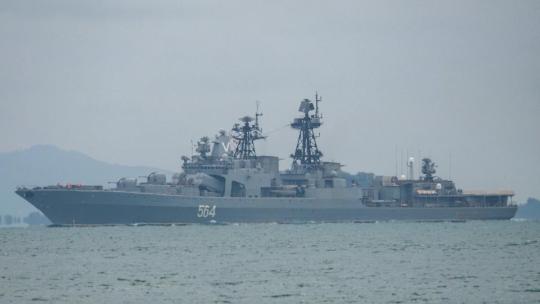
View On WordPress
0 notes
Text
i used to not care abt vladivostok’s khl team but
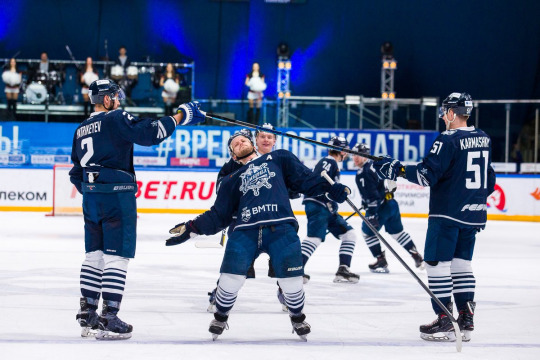
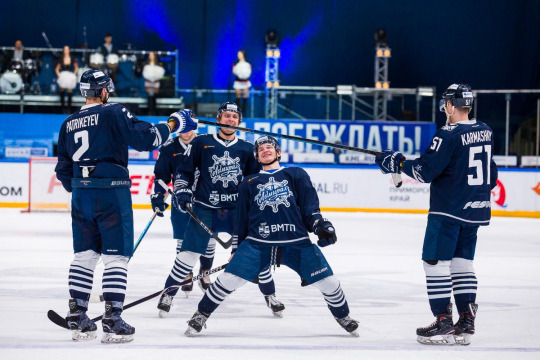
now i am happy to support an admiral bunch of jerks :)
#khl#:)#bunch of jerks#me:who . r the vladivostok admirals#them: limbo#me: ah yes a group of scholars i love them
15 notes
·
View notes
Text
Baron Roman Ungern von Sternberg, The Man Who Would Be Mongolian Emperor
New Post has been published on https://china-underground.com/2016/04/11/baron-roman-ungern-von-sternberg-man-mongolian-emperor/
Baron Roman Ungern von Sternberg, The Man Who Would Be Mongolian Emperor
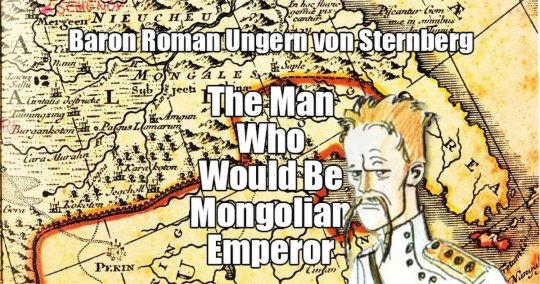
Baron Roman Ungern von Sternberg (Roman Fedorovich Ungern von Shternberg), also known by the epithet Mad Baron (or Black Baron; January 22, 1886, September 15, 1921), fought the White Movement during the Russian Civil War and later was a bloodthirsty warlord.
He attempted to establish a monarchy in Mongolia and the lands to the east of Lake Baikal.
Related article: Haunting images of Mongolia (1913), Japanese war prints of the Sino-Japanese war, Fascinating Xinhai Revolution images, the Chinese Revolution of 1911, history of the First Sino-Japanese War

He was born in Graz, Austria by a Balkan family and grew up in Tallinn in Estonia, which at the time was not yet entered in the orbit of Russia, in the custody of his stepfather Oscar von Hoyningen-Huene.
After attending the Pavlovsk Military Academy in St. Petersburg, he served in Siberia where he came in contact with the nomadic lifestyle of Mongolian and Buryat tribes. During World War II, Ungern von Sternberg fought in Galicia.
In this period he was considered a brave soldier, but sometimes reckless and unstable. General Wrangel mentioned in his memoirs fears to promote Ungern-Sternberg.
After the February Revolution of 1917, he was sent by the provincial government in Eastern Russia, under the command of Grigori Semenov to establish a military garrison.
With the October Revolution of 1917, Semenov and his right arm, Ungern von Sternberg opposed the Bolsheviks.
In the following months, Ungern von Sternberg distinguished himself for his cruelty towards the local population and his own subordinates, earning the nickname Bloody Baron. For his decidedly eccentric attitudes, it was also called Crazy Baron.
Semenov and Ungern von Sternberg, though anti-Bolsheviks, were not part of the White Movement and did not recognize the authority of Admiral Aleksandr Kolchak.
They were instead supported both financially and from a military point of view by the Japanese. The Japanese hoped to set up a puppet state headed by Semenov in Eastern Russia. For Kolchak who believed in Russia as a powerful and indivisible entity, this was an act of treason.
The troops of Ungern von Sternberg were a mixture of Russian soldiers, Cossacks, and Buryat nomad’s ethnicity. They targeted the supply trains of the Bolsheviks and of the White movement.
Semenov and Ungern von Sternberg were successful against the White Movement as the base of operations of Admiral Kolchak was located in the heart of Central Siberia and the trains came from Vladivostok, on the Pacific Ocean.
At this point, the railway line of the Trans-Siberian was in their hands. But they chose different paths in 1920 when Ungern decided to become a Lord of the Independent War.
He strongly believed that the monarchy was the only antidote to the corruption and self-destruction of Western civilization. He began to cultivate the idea of restoring the Qing Dynasty of China on the throne and then unifying the countries of the Far East under its flag.
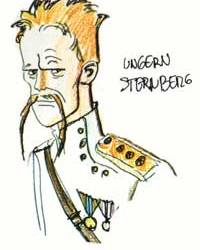
It was also a fanatical anti-Semitic leader and in 1918 he proclaimed to want to exterminate all the Jews and the Russian Communists bringing back the Grand Duke Mikhail, the younger brother of Nicholas II on the Russian throne. Its troops massacred many Jews fleeing even with extremely cruel ways as flaying victims still alive. Since 1919 Mongolia was under the control of the Republic of China forces.
At the turn of 1920 and 1921, the troops of Ungern von Sternberg entered Mongolia called by the deposed Bogd Khan, a civil and religious Mongol leader.
In January 1921 the army of Ungern repeatedly assaulted the capital Urga (now Ulaanbaatar), but without ever succeeding and undergoing numerous losses. He gave orders to set fire to the fields around the city trying to tighten its grip on the besieged. The following February he managed to take control of the city.
On 13 March 1921 Mongolia was proclaimed an independent monarchy, and Ungern von Sternberg became its dictator.
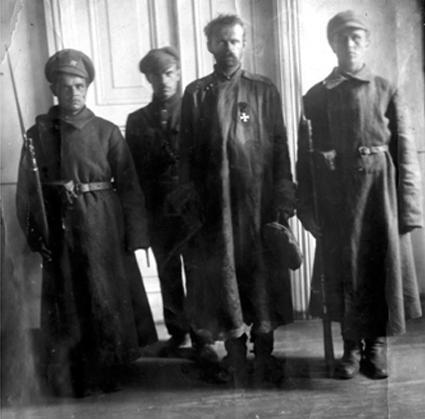
Baron Roman von Ungern-Sternberg before being executed.
Ungern was a mystic fascinated by Eastern religions that believed to be the reincarnation of Genghis Khan and the XIII Dalai Lama: an abnormal mixture of Russian nationalism and Chinese and Mongol beliefs.
His brief reign was characterized by looting and terror.
A Red Army sent to fight Ungern, supported by the leading Mongolian pro-Soviet Shbaatar (Sukhe-Bator), defeated the Mad Baron troops.
In May Ungern von Sternberg tried to invade the territory of Russia at Troitskosavsk (now Kyakhta, Buryatia).
After some initial successes in May and June, in the summer he was defeated by the Soviet counteroffensive and was arrested on August 21, 1921. After a summary trial, he was executed in Novonikolayevsk (Novosibirsk today).
Before being shot, he swallowed his St. George Cross medal of honor, to prevent it from falling into communist hands.
Curiosity
Ungern von Sternberg is at the center of the beautiful graphic novel by Hugo Pratt “Corte Sconta detta Arcana” (Corto Maltese in Siberia), first serialized in the Italian comics magazine Linus in 1974, where he will meet Corto Maltese.
In the video game Iron Storm, Ungern becomes the model to depict the evil “Baron Ugenberg”, the leader of a mysterious Russian-Mongolian Empire during the First World War until the early sixties.
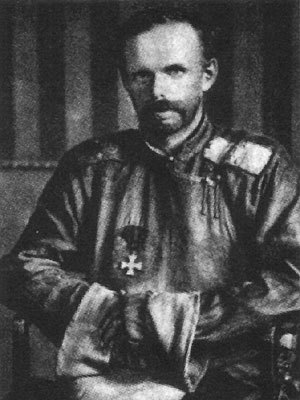
Source: Wikipedia, CinaOggi.it
Drawings from Corto Maltese in Siberia, Hugo Pratt, 1974
#Communism, #CortoMaltese, #GengisKhan, #History, #HugoPratt, #MadBaron, #Mongolia, #MongolianEmpire, #QingDynasty, #UngernVonSternberg, #WhiteMovement
#communism#corto maltese#gengis khan#history#hugo pratt#mad baron#mongolia#mongolian empire#Qing Dynasty#Ungern von Sternberg#white movement
3 notes
·
View notes
Photo
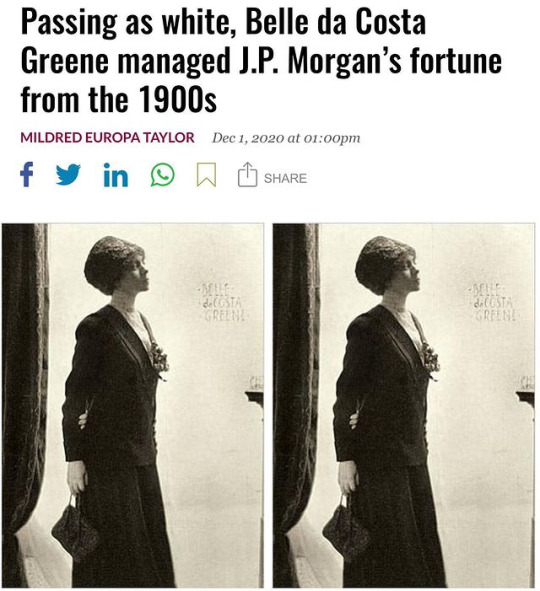
For 43 years, Belle da Costa Greene ran the Morgan Library — 19 years as the private librarian of financier J. Pierpont Morgan and later his son, Jack, then 24 years as the inaugural director of the Pierpont Morgan Library, which is now known as the Morgan Library & Museum.
She did not only help Morgan to organize his legendary collection of manuscripts and rare books, but also transformed Morgan’s private collection into a major public resource which, to date, hosts series of lectures, exhibitions, publications, and research services, all of which first started under Greene.
Becoming “arguably the most powerful woman in the New York art and book world” at the turn of the 20th century, Greene, with a flamboyant fashion sense, dined with the rich and famous, including opera stars, tycoons, and royalty. She had access to places that were not welcome to Black people, and she won many admirers who were charmed by her acuity and intelligence.
But historians say she probably wouldn’t have made it to that level had she revealed her background. Greene told everyone who bothered to ask that she was Portuguese, but in fact, she was Black. Her employers did not even learn of her secret until her death.
The child of two African-American parents of mixed ancestry, her birth certificate identified her as “colored” though she was light-skinned as both her parents. Her father was lawyer Richard T. Greener, the first African American to graduate from Harvard and the first librarian of color at the University of South Carolina. Genevieve Fleet was her mother.
Growing up in a community of color in Washington, D.C., Greene, by the age of 12, wanted to work with rare books. “I loved them even then, the sight of them, the wonderful feel of them, the romance and the thrill of them,” she once said. Though Greene perhaps developed her love for rare books from her father, she knew that it would be difficult for her to rise, being in a deeply segregated and racist society and having witnessed her father being subjected to discrimination.
So when her father left the country in 1898 for a consular post in Vladivostok, Russia, and her parents’ marriage came to an end, Greene and her mother shortened their last name. They began publicly describing themselves as Americans of Portuguese descent and passed as white.
Greene (named Belle Marion Greener at birth) became Bella da Costa Greene, constantly explaining that “da Costa” was a reflection of her Portuguese ancestry.
While in her teens, Greene, unable to afford college without her father’s help, started working at the Princeton University library where she soon mastered cataloging and served in the reference department. However, it was her interest in the library’s rare-book collection that grabbed the attention of Junius Spencer Morgan, a nephew of J. Pierpont Morgan. Junius recommended Greene to his uncle, Morgan, who was then building a library in New York City for his large collection of manuscripts and early books.
By late 1905, Greene had begun working as the private librarian of Morgan. Managing, documenting and building his collection of rare books and manuscripts, she also organized public exhibitions at outside venues and traveled regularly to Europe to purchase additions to the financier’s collection. Morgan admired her work and soon made her his “primary adviser on manuscript matters,” according to a report by The New York Times. By 1911, Greene had become a well-known figure to dealers and scholars, and could even defeat experienced bidders during auctions. By 1912, she was earning a quarter million a year.
When Morgan died in 1913, it was found that nearly half of his $3 billion was in his art collection. “Some went to the Met but the rest remained under the control of Belle da Costa Greene,” a report noted. It is also documented that Morgan’s “considerable fortune” was at her disposal. Greene continued to work as a private librarian to Morgan’s son, J.P. Morgan Jr. It was during this period that Greene thought of making the rare books in her employer’s collection available to the public instead of getting them locked in the vaults of private collectors.
Thus, in 1924 when Morgan’s library became a public institution and she became its first director, she mounted a series of exhibitions, and one even drew a record 170,000 people. She continued to make trips to Europe and would for the next 24 years transform her boss’ library into a world center for scholarly research.
In 1949 — a year after she retired — an exhibition was mounted at the library in her honor. She died the following year but her legacy lives on in the many contributions she made to bibliography and scholarship. Her employer’s library was renovated in 2006. The Morgan Library & Museum to date caters to scholars while playing its role as a public institution.
[h/t]
#passing for white#black women#belle da costa greene#morgan library#j. pierpont morgan#j.p. morgan chase#jp morgan chase#pierpont morgan library#morgan library & museum#richard t. greener#richard t greener#genevieve fleet#belle marion greener#princeton university#junius spencer morgan
70 notes
·
View notes
Note
Have you read about the Czech legions armored train ride? After WWI they got support to form their own country, but needed to get to Vladivostok from continental Europe during the Russian Civil War in an armored train.


Yep, but they still needed to cooperate with the now soviet forces in Russia in order to escape, so they basically stabbed white russian forces in the back by selling out one of their admirals in return for safe passage in a part of the railroad in Siberia.
9 notes
·
View notes